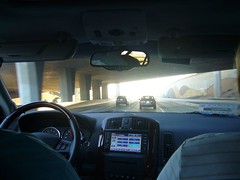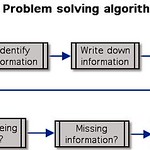Look, I know this is short notice, but I’ve only just found this out for myself. The EdExec people, who produce a very good magazine with a section called ICT Matters, is having a live event on the 6th November.
Read MoreI like a challenge so I thought I’d try to create a self-marking spreadsheet in Excel. (Look, some men like fast cars, some like sport, and some like womanising. Me? I like spreadsheets. OK?)
I was inspired to have a go at this by someone called Lee Rymill, who uploaded a self-marking spreadsheet to the CAS resources area. However, I wanted to take it a few steps further…
Read MoreAlthough I am an advocate of project-based learning, I am not unaware of its challenges. As the old military adage has it, failure to prepare is preparation to fail, so here is a list of what I consider to be the main issues you need to be aware of. Many of them may be subsumed under the general heading “management”, but I believe it’s worth itemising them all nonetheless.
Read MoreThere are some good websites where you can pick up some good ideas and resources. Here are just a few of them. Do explore them.
Read More It’s that time of year again. No, I don’t mean the Christmas lights and shopping, but starting to think about BETT in January. If you’re serious about educational technology you really must try to get there, even if you can only manage a day: you’re bound to see something that you find interesting and useful.
It’s that time of year again. No, I don’t mean the Christmas lights and shopping, but starting to think about BETT in January. If you’re serious about educational technology you really must try to get there, even if you can only manage a day: you’re bound to see something that you find interesting and useful. It’s that time of year again. No, I don’t mean the Christmas lights and shopping, but starting to think about BETT in January. If you’re serious about educational technology you really must try to get there, even if you can only manage a day: you’re bound to see something that you find interesting and useful.
It’s that time of year again. No, I don’t mean the Christmas lights and shopping, but starting to think about BETT in January. If you’re serious about educational technology you really must try to get there, even if you can only manage a day: you’re bound to see something that you find interesting and useful.











